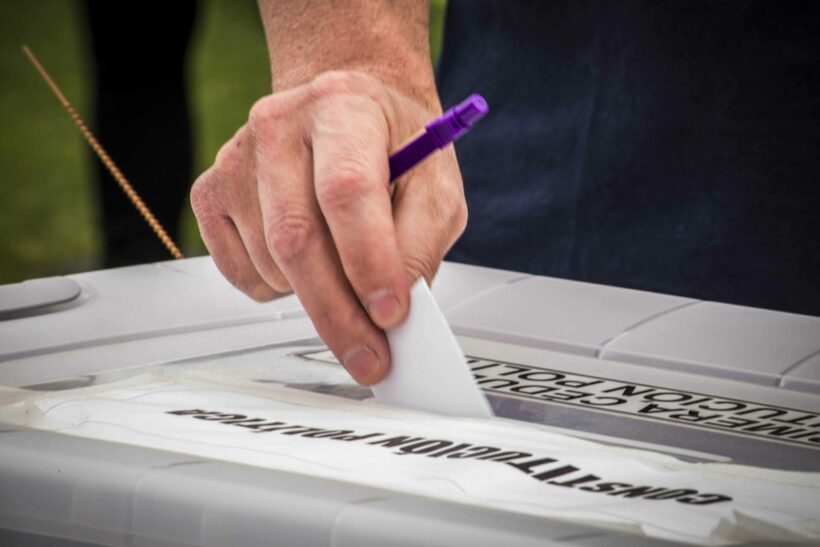The Chilean case is a true expression of the fact that democracy is not just about holding periodic elections. On the contrary, the fundamental preoccupation of political parties can become a real obstacle to the genuine exercise of popular sovereignty.
Citizens have little or nothing to do with so-called electoral engineering, that is, the obsessive search for pacts and alliances that ensure that the various collectives have representatives in the executive, parliament, regional, and local governments.
In the first months of this year, we are already in the midst of the maelstrom of cupula arrangements for the distribution of the country’s municipal posts and governorships, a design that should be.
The map of governors, mayors, and councilors will be the preamble to the legislative and presidential elections in two years.
Both the ruling and opposition parties are consolidating “pacts by exclusion” and hand-picking candidates who will allow them to remain well-balanced within the state apparatus and, above all, guarantee them access to the spoils of the public purse.
And electoral engineering is not an easy task. The right has to reconcile the ambitions of at least four political parties and as many different expressions of opposition, from the center to ultra-conservatism, in its electoral lists. The same is true of the ruling party, where at least seven other collectives and countless “sensitivities” (as they call them) must compete for public office in the 346 municipalities and 16 governorships.
Since the will of the people counts for little in Chile, millions of citizens everywhere will not be able to vote for the parties and candidates that best represent their ideas and interests. It will be impossible for the parties to have guaranteed the nomination of candidates throughout the country and in all the districts and constituencies since it is electoral engineering that selects candidates by area.
It is electoral engineering that selects candidates by area, which is why the so-called “exclusion pacts” end up being imposed. That is, here I go, there he goes, and in other cases neither you nor I can stand.
Neither you nor I can walk. Not to mention the fact that the opponents are strong in this town or municipality, so the competition is often something like a mere salute to the flag, for which it is not worth so much effort and proselytizing. Even less is there a free and pluralistic debate of ideas.
In this way, political militancy itself is rendered useless when it is taken for granted that this or that place “belongs” (in electoral jargon) to the right, center, or left, such as the emblematic municipality of Providencia.
The emblematic municipalities of Providencia, Las Condes, Quinta Normal, Pudahuel, as well as entire cities and regions such as Talca, Punta Arenas, and many others.
In this way, Chile’s peculiar democracy encourages a great political stalemate.
Boric is going to La Moneda and will probably be replaced by someone from the opposition. Just as the so-called “alternation of power” allowed Michelle Bachelet to govern twice and Sebastián Piñera to govern twice. “You in government, me in parliament”. In this way, the reforms that were so much talked about, demanded, and promised during the election campaigns become impossible.
Even the young and radical left politicians have not been able to do much to meet the demands of the people. Nor have the ultra-right Republicans been able to break the electoral vicious circle which, in reality, has led to the following situation.
The electoral vicious circle in reality maintains the hegemony of the traditional collectives, without having any correlation with the results of each election. No one can be sure how much weight the UDI, the National Renewal, the Christian Democrats, the Communists, the PPD or the Socialists have, despite the continued desertion of militants, since they have been considered “dead” on several occasions. The political leaders support each other, respecting their “historical” spaces and preventing the arrival of what they call “upstarts”.
So much so that the right’s virtual presidential candidate has already called on voters not to vote for those candidates who collect signatures from citizens to run as independents.
The Frente Amplio has been the exception to this familiar ‘court-scratching’. Once in power, however, as we have seen, many of its militants were corrupted in the same way as the old politicians, influenced by the games of the bosses and electoral engineering. Composed of a myriad of expressions and acronyms, their consolidation in politics will surely depend on whether they manage to form a single entity on par with their partners in the official conglomerate. Although in the positions they hold, many have unfortunately embraced the political pragmatism they so despise.
The political pragmatism that they so despise and that has given rise to so many illusions among the great mass of the neglected. Of that real Chile that maintains intact its profound socio-economic and cultural asymmetries. Of the millions of workers in precarious or informal employment. Or the pensioners, the homeless, or those on long waiting lists for health care.
The political class boasts that inflation is limited to the level of the decline in purchasing power. This certainly prevents them from boasting about the fight against growing crime and insecurity, the offspring of inequality.
The new electoral competition has already begun and will be confirmed by the massive turnout of citizens at the polls, thanks to the fact that voting is compulsory here. So that before the last vote is counted, we will once again be at the forefront of new electoral games in the inertia of a country where everything remains more or less the same. Except for age, which is relentlessly advancing among those who are perpetuated in politics.










